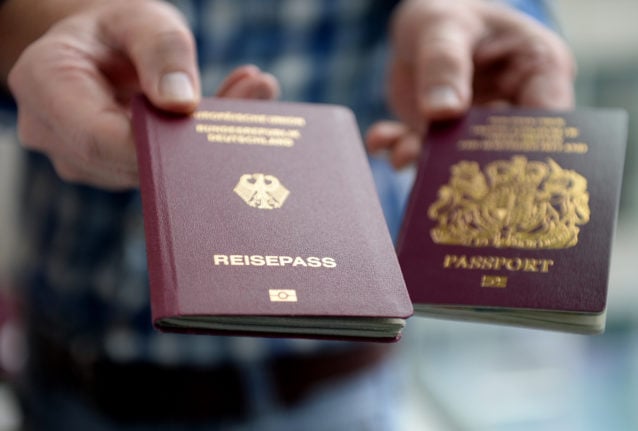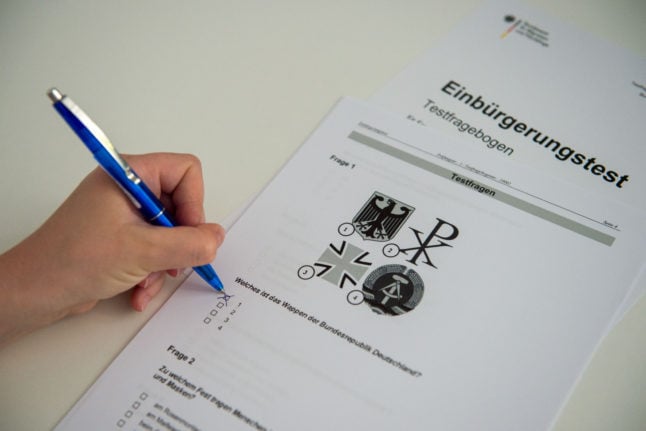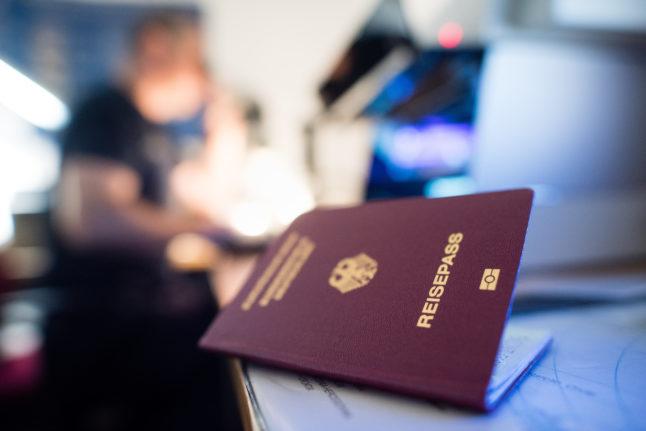Foreigners in Germany are eagerly awaiting a key change in citizenship law that will finally allow non-EU citizens to apply for a German passport and also keep their existing one.
This week, The Local revealed that a debate on the new Citizens’ Act is scheduled in the Bundestag for December, with the changes likely to come into force next year.
With a whole new set of rules set to come into force within months, there’s some confusion over what rules will apply to people who have already submitted their applications – or who plan to in the near future.
With they be eligible for dual nationality if the rules change while they’re waiting for their application to be processed? And will people who give up their existing nationality be able to regain it after the new Nationality Act comes into force?
READ ALSO:
- EXCLUSIVE: German Bundestag to debate law allowing dual citizenship in December
- INTERVIEW: ‘Changing German citizenship laws is a priority’
According to the Interior Ministry, the rules that will apply to your citizenship application will always be based on the current law at the time.
“The naturalisation authorities have to decide on ongoing procedures on the basis of the current law until the new Nationality Act comes into force,” a spokeswoman for the Interior Ministry told The Local. “That means applicants still have to give up their previous nationality if none of the existing legal exceptions applies to them.”
This point was reiterated by Berlin Mitte’s Citizenship Office, who emphasised that implementing the changes “could take several years”.
“The most current Nationality Act will always apply,” they said.

However, when pushed for more details, they revealed that a change in the law while your application is being processed would mean that your right to dual nationality would also change.
“The law that is applicable at the time when German citizenship is granted is the law that is applied,” they explained.
To clarify this a bit, let’s sum up a few different scenarios in turn.
If the law changes while you’re waiting for your German passport:
In this scenario, you should be granted dual nationality. As the Citizenship Office in central Berlin explained, whoever processes your application should apply the law that is in force at the time when citizenship is actually granted.
In other words, it doesn’t matter what the law is when you submit your application. The only thing that matters is which set of rules is in force when you finally come to pick up your German citizenship certificates.
READ ALSO: What’s the latest on Germany’s plan to change dual citizenship laws?
If you get your German nationality before the law changes:
In this scenario, you will have to give up your existing nationality – unless you fall under one of Germany’s exceptions to the dual nationality rule. This can include being an EU citizen, being unable to give up your citizenship in your country of origin, being a refugee, or being unable to afford the cost of giving up your existing nationality.
However, if this is your situation, you may not have to give up your citizenship forever. Which brings us to our next point…
If you’ve already given up your citizenship:
If you have to give up your existing citizenship to become German (or have already done so), there’s some good news: when the law changes, you’ll be entitled to reapply for your original nationality and become a dual national.
“German law would not be opposed to people reacquiring their previously renounced nationality after the intended change in the law, since due to the intended general allowance of multiple nationality, the acquisition of a foreign nationality would then no longer lead to the loss of German nationality,” a spokesperson for the Interior Ministry told The Local.
In other words, you’d basically be treated like any other German national applying for another nationality once the law has changed.
However, you should note that your ability to reapply for your previous citizenship will also depend on the rules in your home country.
In the UK, for example, it’s relatively easy to get your passport back. You’ll just have to prove that you had to give it up as part of the German naturalisation process.
In the United States, the opposite is true: giving up your American citizenship is an irrevocable act, meaning it can only be undone in highly exceptional circumstances.
READ ALSO: Giving up being British: What you should know about becoming German after December 31st
When is the right time to apply for citizenship?
As we always say, this is a personal decision. Only you know whether getting German citizenship as fast as possible or becoming a dual national is more important to you.
If you do apply now and want to keep your old passport, you’ll essentially be gambling on the law changing faster than it takes the Citizenship Office to process your application. And though laws can be slow-moving in Germany, this may not be a bad bet to make.
In some parts of Berlin, for example, it can take months to get an appointment at a Citizenship Office and at least a couple of years to be granted citizenship, so in those cases, if you’re eligible to apply, you may want to consider getting the ball rolling as early as you can.

Meanwhile, the Interior Ministry is attempting to draft the relevant changes to the Citizenship Act and present them to parliament by the end of the year – though of course there could be delays.
Before applying, you may want to find out the average time it takes to process an application at your local Citizenship Office and think about how long you’re willing to wait for your German passport. If it takes around a year in your area and you think the law will have changed by next summer (according to the Interior Ministry’s plans), it may make sense to start the application soon if you meet the criteria.
READ ALSO: ‘Two years is normal’: How Germany’s citizenship process leaves foreigners hanging
However, it’s also important to weigh up the risks of giving up your citizenship in the event that your application is processed faster than expected, or the law changes more slowly than expected. If you’re from a country where it’s easy to regain it, this may not be a big deal, but in countries like the United States, renouncing the passport is an irreversible decision.
Get in touch with an immigration lawyer if you want to talk through the specifics of your application and get some insights on when might be a good time to apply.



 Please whitelist us to continue reading.
Please whitelist us to continue reading.
Member comments